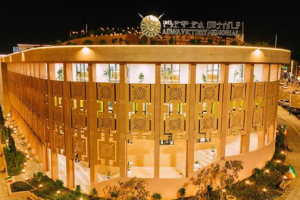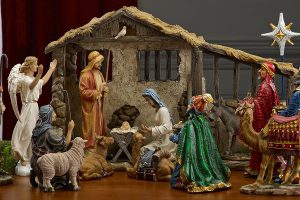There is something truly unique to Ethiopian culture and that is the unofficial tradition of observing the Easter holidays twice within a single week. The first and main Easter celebrations took place the previous Sunday, and last Sunday the second Easter, so to say, was another occasion of grand celebrations, marry making feasts and most of all wedding ceremonies that took place among Christians of various denominations. The second Easter was not only a time of eating and drinking and marry making but also a time of starting new families as young people are going through a time of great bliss.
What caught my attention last Sunday was not only the large crowds in the streets but also the wedding processions that were so noisy and so crazy. Young people were driving their cars and small tripod vehicles known here as “Bajaj” that have invaded the main streets cobblestone covered alleyways in almost every town in Ethiopia. There was also some dangerous driving as apparently tipsy passengers in cars and Bajaj were zipping around with hair-raising speed that you sometimes think in horror at the prospect of a collision that could result in many deaths and injuries. It was a time of crazy celebration, a once in a lifetime opportunity for the newly-weds as well as their guests.
There were also moments of fun worthy of a Bollywood movie. Two different wedding processions were passing each other in opposite directions and that created a little bit of confusion as the drivers seemed to have lost direction and the passengers from both wedding processions almost touched one another and the cars nearly collided. It was amazing to see how all those vehicles swarming in the narrow streets could avoid colliding although there were many moments of near-collisions that could have resulted in near deaths.
Another shocking spectacle was the presence of a white limousine that was gliding on the street while its black windows with their tainted glasses were closed and that gives you the impression that no passenger was inside the long vehicle. The limousine had apparently travelled all the way from Addis Ababa to Bishoftu, passing through the vibrant town of Dukem, followed by a long line of new model cars and a retinue of marry makers. The rest of the cars and the Bajajs were honking their horns and producing a deafening sound accompanied with songs and ululations rising from the multitude of passengers in their cars. The whole sight was both arousing as well as causing momentary anxiety.
The second Easter is not only celebrated in the streets. It was also alive in the bars and hotels where meat was consumed in great amount and drinks flowed like the water in the artificial fountains you see at the entrance of some of the luxury hotels in the famous resort town of Bishoftu. Most people were overjoyed maybe because this was the last moment of marry-making in the Ethiopian calendar as Easter is the last holiday of the year which will be followed by a couple of less popular celebrations that take place during the fast approaching rainy and cold season.
Entire families had reserved tables in hotels where sat young and old as well as children from same families. What was missing in the middle of all that hullaballoo was the precautionary measures that should be taken against the risks catching the pandemic. Unfortunately, the pandemic seemed to have vanished from the memories of most merrymakers as they come and go and speak to one another in close contact without wearing face masks as if they were afraid it might spoil the mood of the moment.
The recent warnings and regulations about compulsory mask wearing and social distancing were ignored both in the streets and in the hotels. There was no one around or signs warning people to keep themselves safe. As people drank more and more and become tipsier, they started to dance to the tunes of traditional and patriotic songs and that was the worst moment. The hugging and cheek kissing was the cause of so much anxiety. That was obviously the worst moment of all the emotions that overflowed as if they were irrigated by countless bottles of beer.
I am not a psychologist but I guess that one of the reasons for the wild celebrations during the second Easter week may be people’s craving for a way out of the stresses and daily hustles of life that have recently become quite unbearable due to the rise in the cost of living and other sources of anxiety. Yet, judging from the crowds in the bars and restaurants and the money that is spent on that occasion, what you call high cost of living looks like a figment of the imagination of some economists from the school of pessimism. However, the day after all the marry making is bound to be different as the costs and benefits of high spending might cause headaches more than stomach aches.
The second Easter Sunday might not be on the calendar of the Ethiopian Orthodox Church. Yet, popular mood or popular practice has almost turned it into an informal holiday as much important as the first Easter Sunday. It is a kind of repeat of the first version with greater noise and passion.
Ethiopian communities have divided the seasons in accordance with nature and its manifestations. As we celebrate Easter, we are approaching the rainy season when feasts leave the place to hard work in the fields under difficult conditions. The sunny Ethiopian month of Ginbot is the last week of the dry season. It will soon be followed by the three-month long season of kiremt or the rainy season. The seasonal cycle repeats itself on and on.
So, last Sunday’s celebrations could be taken for or interpreted as a goodbye time before the rainy season sets in and makes life a little bit miserable with the cold, the wet weather and the mud and all that makes life less pleasurable. Easter, both the first and second ones, might be gone by now but the weddings will continue until the end of the coming two months at the end return of regular fasting and abstinence from the excesses of the holidays.
There may be a few countries in the world where the people celebrate holidays with so much fervor as do Ethiopians in general with the exception of Muslims whose religion prohibits indulgence in alcoholic drinks that are the sources of much health troubles. Muslim holidays are times of prayers, sobriety, pity and repentance. The end of the holy month of Ramadan is expected to be a peaceful time of prayer for the prevalence of peace and mutual respect among the various communities, a problem that continues to deprive many well-meaning citizens of their precious sleeps.
After the marry-making and mass weddings will inevitably come the time of sober thinking as people go to the ballots to elect the country’s leaders for the coming five years. It is everyone’s hope and wish that the elections will be peaceful and orderly. It does not really matter who is at the helms. What matters most is the peace and life of the people who are mostly peace loving citizens who are concerned about the future of their country. As one of the popular songs have it these days, there is no happiness and so much fun unless the country is at peace with itself as well as with its neighbors.
As Ethiopians celebrated the second Easter Sunday, their thoughts might not turn to troubling issues but the next few weeks and days will be occasions for hard thinking about the fate of the nation and its people who are enduring so much hardship while stealing a few moments of marry-making in between. Judging from the events of the last few weeks there is so much optimism in the air as well as so much bad news, real or fake ones, if one thing is certain however, the brides and grooms at those fantastic wedding ceremonies symbolize their hopes of raising their children in a peaceful country.
BY MULUGETA GUDETA
The Ethiopian Herald May 22/2021





